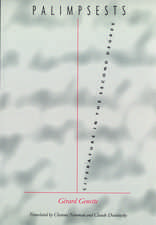Uneven Land: Nature and Agriculture in American Writing
Autor Stephanie L. Sarveren Limba Engleză Hardback – 31 oct 1999
Uneven Land explores the ambiguous conceptual position of agriculture and nature in American literature during the late nineteenth and early twentieth centuries. Focusing on the work of Ralph Waldo Emerson, Hamlin Garland, Frank Norris, William Ellsworth Smythe, and Liberty Hyde Bailey, Stephanie L. Sarver reveals a range of views about agriculture, its value to the individual, and its relationship to nature.
Sarver proposes that agricultural practices require a relationship with nature that is simultaneously material and spiritual as well as economic and social. Emerson interprets the relationship between the farmer and nature in several ways, confirming that the farmer enjoys a privileged connection to nature. Garland and Bailey continue in Emerson’s tradition but present the farmer’s relationship to nature as always compromised by the commercial character of farming. In contrast, Norris and Smythe minimize the individual spiritual experiences of nature in farming. They abstract agrarian land, suggesting that the farm is a stage on which human dramas are enacted. Out of this study emerges a complex picture of America’s uncertain relationship with nature and agriculture.
Preț: 325.44 lei
Nou
Puncte Express: 488
Preț estimativ în valută:
62.29€ • 67.69$ • 52.36£
62.29€ • 67.69$ • 52.36£
Carte tipărită la comandă
Livrare economică 21 aprilie-05 mai
Preluare comenzi: 021 569.72.76
Specificații
ISBN-13: 9780803242524
ISBN-10: 0803242522
Pagini: 207
Dimensiuni: 152 x 229 x 15 mm
Greutate: 0.5 kg
Ediția:New.
Editura: Nebraska
Colecția University of Nebraska Press
Locul publicării:United States
ISBN-10: 0803242522
Pagini: 207
Dimensiuni: 152 x 229 x 15 mm
Greutate: 0.5 kg
Ediția:New.
Editura: Nebraska
Colecția University of Nebraska Press
Locul publicării:United States
Notă biografică
Stephanie L. Sarver received her Ph.D. from the University of California, Davis. She works as an editor in the San Francisco Bay area. She has written for Western American Literature, Literature/Film Quarterly, and Terra Nova.
Recenzii
"Sarver's study reminds us that farmers are still players, that agriculture is still integral to our societal structure, and that the uneven relationships today’s farmers have with the natural world will continue to determine whether the food we eat is wholesome and whether their land will sustain agriculture fifty years from now."—Western American Literature
"Sarver explores a range of views about the position of agriculture in relation to the individual and society by focusing on American writers. . . . This thoughtful contribution to the growing field of ecocriticism is recommended for graduate students, researchers, and faculty."—Choice










